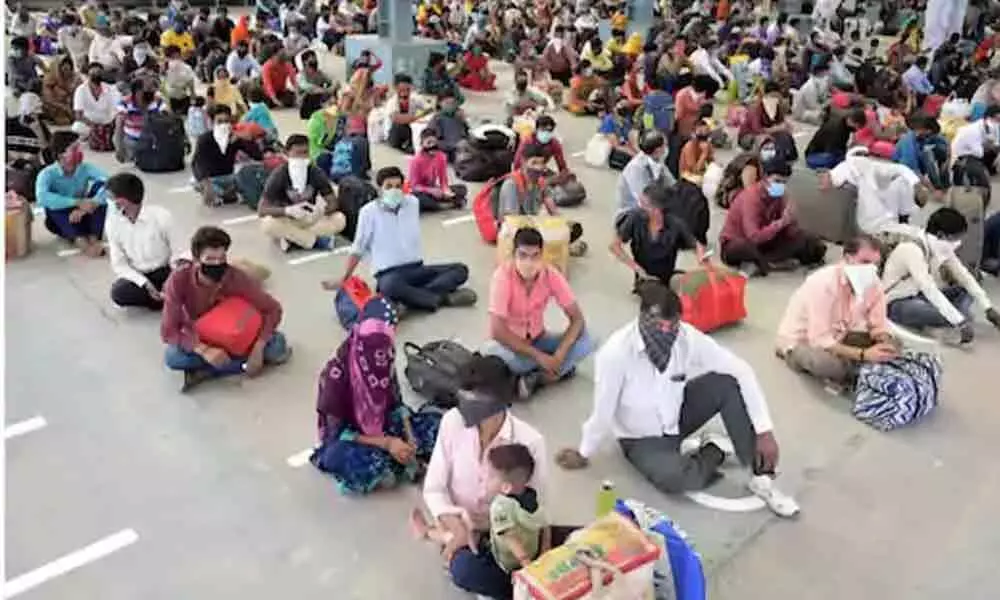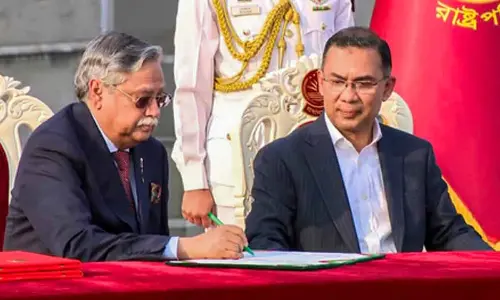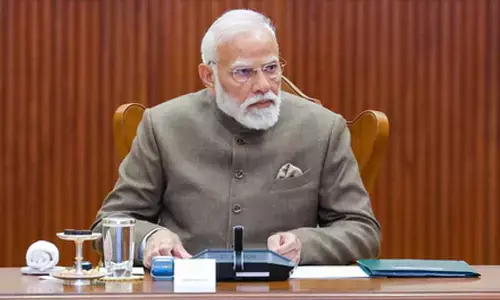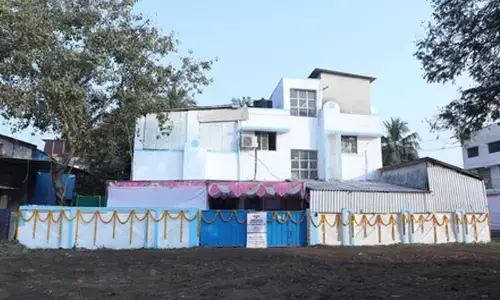Telangana to make registration of migrant workers compulsory

Migrant labourers during Coronavirus triggered lockdown.
Drawing lessons from the Covid-19 induced lockdown, Telangana is well on course to become the first state in the country to make registration of migrant workers compulsory and eliminate the role of contractors or middlemen.
Hyderabad: Drawing lessons from the Covid-19 induced lockdown, Telangana is well on course to become the first state in the country to make registration of migrant workers compulsory and eliminate the role of contractors or middlemen.
The state government is working on a new policy which is expected to streamline the system to hire migrant workers.
Under the proposed policy, likely to be announced soon, any employer employing five or more migrant workers will have to register with the Labour Department and obtain a license.
As the employer will have to submit all details of the workers hired, this will help authorities build a database of migrant workers and ensure transparency in the entire system.
In a move to encourage the return of migrant workers to the state, the government will also make it compulsory for the employers to pay for their transportation.
The government's consultations with various stakeholders to frame the new policy are currently in the final stage.
This will make Telangana the first state in the country to put in place a system to safeguard the interests of migrant workers, who had to suffer a lot after the imposition of nation-wide lockdown in March.
In the absence of any database of migrant workers, the authorities found it difficult to reach out to them, extend timely help and arrange for their transport.
The proposed policy is not only expected to bring transparency in the system, protect the interests of the workers but also help the industry by eliminating the role of middlemen.
"This is a very good policy. It will be a win-win situation for all," R. Ravi Kumar of the Federation of Telangana Chambers of Commerce and Industry (FTCCI) told IANS.
Migrant workers till now used to come through contractors, who never used to disclose the actual numbers but with the implementation of new policy, they will not have any role.
"Now the rule says if I am employing more than five, I need to register. Once I register, I will have a license of my own. I have to give their names, Aadhaar card numbers and other details to authorities so that there is a record and we know how many migrant workers have come and from where," he said.
"Corona has helped people to get some system. Otherwise there was no record of migrant workers in true sense. If tomorrow some pandemic comes, you will be clear what you should do," said Ravi Kumar, who heads the FTCCI committee on human resources and industrial relations.
M. Saibabu, Vice President of the Centre for Indian Trade Unions (CITU), however, pointed out that there is already Inter-State Migrant Workmen Act, 1979 but it was never implemented properly.
"This Act makes it compulsory for a private management or contractor bringing workers from other states to register them so that authorities have all the details to inform their families in case of any emergency," he said.
The trade union leader pointed out that since the employer is bringing workers to meet its requirements, they should pay transport charges, irrespective of the distance and mode of transport.
The 1979 Act also provides for provision for proper accommodation for migrant workers, as per the International Labour Organisation (ILO) standard for decent working conditions.
"CITU stands for implementation of this Act. The state may provide additional benefits to migrant workers but this Act should be the basis," said Saibabu.
It is estimated that Telangana had 7 to 8 lakh migrant workers before the lockdown was imposed in March. Most of them have returned home.
Majority of the migrant workers were employed in the construction sector, especially in and around Hyderabad. They were also employed in manufacturing, hotel industry, brick kilns, granite sector, rice mills and agriculture.
Aware of the key role played by the migrant workers in the state's economy, the Telangana government did its best to make them stay back after the lockdown was announced. Calling them partners in the development of Telangana, Chief Minister K. Chandrasekhar Rao had announced financial assistance of Rs 500 and 12 kg rice for every migrant.
The authorities had also made arrangements for free food and stay of the migrant workers. However, desperate to return home, many left for their destinations on foot.
Officials said over 1.50 lakh migrant workers were sent to their home states by trains and for this, the Telangana government paid their journey charges to Railways.








